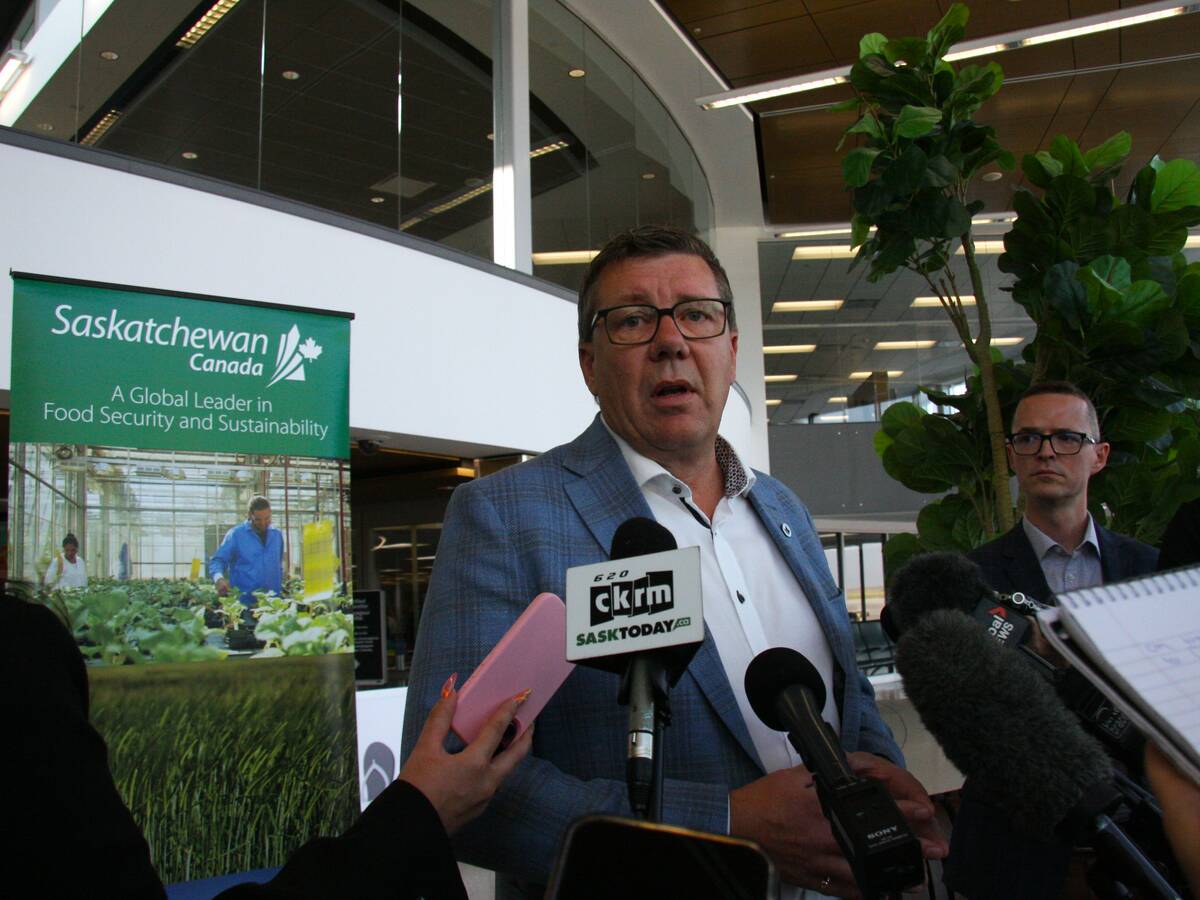A location has been selected for a biodiesel plant that will double Canada’s output of the alternative fuel.
BioStreet Canada is building its 175 million litre crushing facility and refinery in Vegreville, Alta. Construction is slated to begin in December and be completed in late 2009.
“We’re planning on using the 2009 harvest for our first crush,” said Angela Reid, BioStreet’s vice-president of public and government relations.
The company expects to buy 375,000 tonnes of canola a year from area farmers, who will also be given the opportunity to invest in the $70 to $100 million facility.
Read Also

Moe says China trip laid ground work
Saskatchewan premier says signals of moving forward on canola tariffs can be seen in moves from Chinese and Canadian governments
Reid wouldn’t divulge the source of the money behind BioStreet other than to say there is a large private investor and that the company is in negotiations with an energy company.
The plan is to end up with 40 percent debt and 60 percent equity, including a minimum five percent producer investment. That is required to participate in the federal government’s $200 million ecoABC Initiative, a program to assist in the construction of producer-owned biofuel facilities.
But the fledgling company could be in for a shock on that front, said Judie Dyck, president of the Saskatchewan Biofuels Development Council, a group formerly known as the Saskatchewan Ethanol Development Council.
She has been informed by federal program officials that the crushing component of biodiesel ventures will be ineligible for the repayable contributions.
Government officials argue that crushing plants can be used to sell canola oil into the food market, which has nothing to do with a biofuel incentive program.
That is a big concern for producer groups because the crushing equipment is the most expensive part of a biodiesel plant.
Dyck said it violates the essence of a program that was supposed to treat ethanol and biodiesel equally. And she contends most of the groups will produce canola only for industrial applications.
“I’m hopeful that we can make an argument that unless a facility is approved for food production, it should be an eligible expense,” she said.
Reid said it could be a big blow for the BioStreet project because it was counting on access to the federal government’s interest-free loan on all of its capital equipment.
“If it is only applying to the refining process it’s not quite the incentive that I think companies like ours require,” she said.
Infrastructure in place
While that issue gets sorted out, the company will finalize engineering and construction plans for the Vegreville plant.
The town was chosen because of its access to the Canadian National Railway line, proximity to the Yellowhead Highway, available land and the amount of canola grown in the area.
“A lot of the infrastructure and supply was right there already,” said Reid.
Once the plant is operational, it is expected to create more than 50 full-time jobs in the community, which was music to the ears of Orest Berezan, reeve of the County of Minburn.
“The biofuels development would certainly help the local economy, as well as the environment with the production of a renewable green fuel,” he said.
The facility will be built in Alberta premier Ed Stelmach’s riding. He attended the announcement, offering his support for the emerging biofuel industry.
“Alberta’s rural economy is benefiting from the increased demand in biofuels, helping to diversify from one largely dependent on oil and gas,” said Stelmach.















